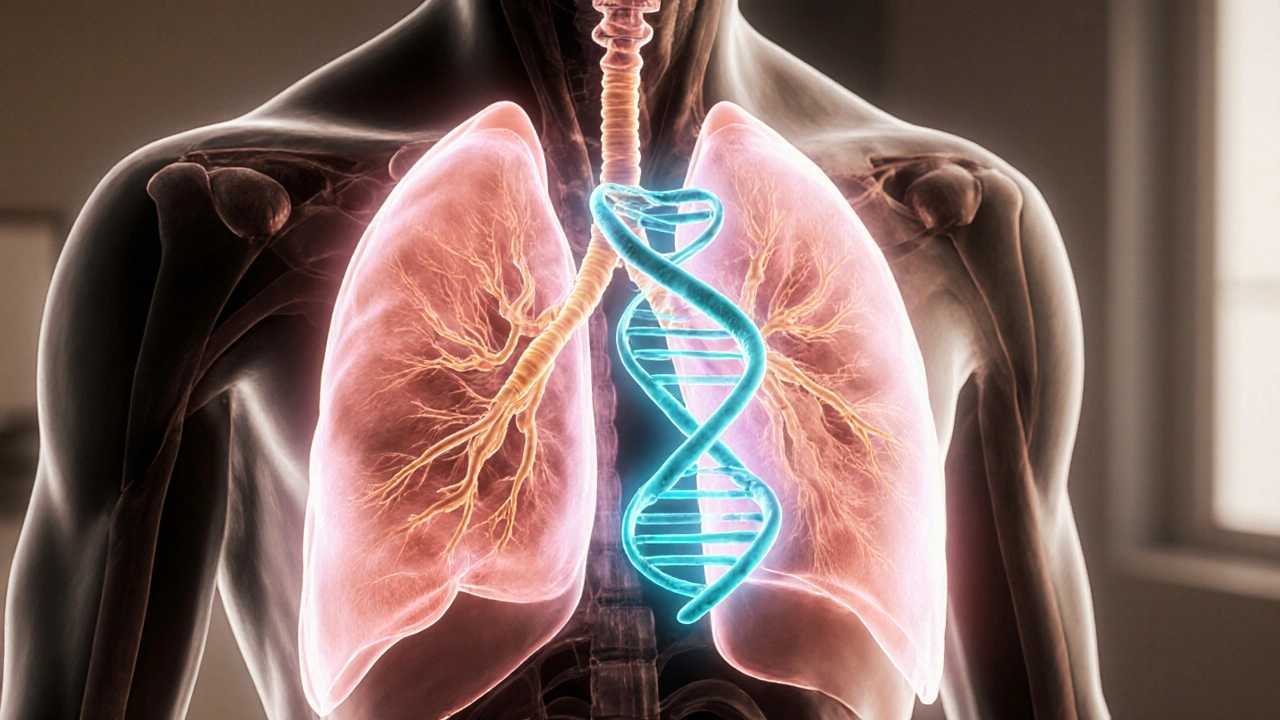Cystic Fibrosis Genetics: What You Need to Know
When working with cystic fibrosis genetics, the study of how DNA variations cause cystic fibrosis and affect disease outcomes. Also known as CF genetics, it helps clinicians, patients, and families grasp risk, treatment choices, and research directions.
The cornerstone is the CFTR gene, a DNA segment that encodes the cystic fibrosis transmembrane conductance regulator protein. This protein controls chloride flow across cell membranes, and more than 2,000 mutations have been documented. Each mutation tweaks the protein in a specific way, ranging from mild to severe functional loss.
Cystic fibrosis follows an autosomal recessive inheritance, a pattern where two defective copies of the gene are required for the disease to appear. Carriers possess one normal and one mutated copy and usually show no symptoms, yet they can pass the faulty allele to their children. Understanding this pattern is critical for family planning and carrier screening.
Universal newborn screening, a routine blood test that detects elevated immunoreactive trypsinogen levels catches most cases within the first weeks of life. Early diagnosis enables prompt nutritional support, airway clearance, and infection prevention, dramatically improving growth and lung health.
Because of the complex mutation landscape, genetic counseling, a service that helps families interpret test results and make informed reproductive decisions is essential. Counselors explain carrier probability, prenatal testing options, and the meaning of specific mutation classes for future children.
Understanding genotype‑phenotype correlation, how particular CFTR mutations translate into disease severity and organ involvement guides therapy selection. For example, CFTR modulators such as ivacaftor work best on gating mutations, while other classes may need different approaches.
Why These Topics Matter Together
Putting these pieces together shows how cystic fibrosis genetics drives every aspect of care—from who is at risk, to how early we can intervene, to which drugs will work best. The interplay between the CFTR gene, inheritance rules, screening programs, counseling, and mutation‑specific treatments creates a roadmap for patients and clinicians alike.
Below you’ll find a curated set of articles that dig deeper into each of these areas, offering practical tips, the latest research, and real‑world advice you can apply right away. Whether you’re a newly diagnosed family, a health‑care professional, or just curious about the genetics behind this condition, the resources ahead will give you clear, actionable insight.
How Genetics Influences Breathing Disorders: Causes, Testing & Treatments
- DARREN LLOYD
- 12
Explore how genetics influences asthma, cystic fibrosis, COPD, and other breathing disorders, covering testing, treatments, and actionable steps for patients.
READ MORE
